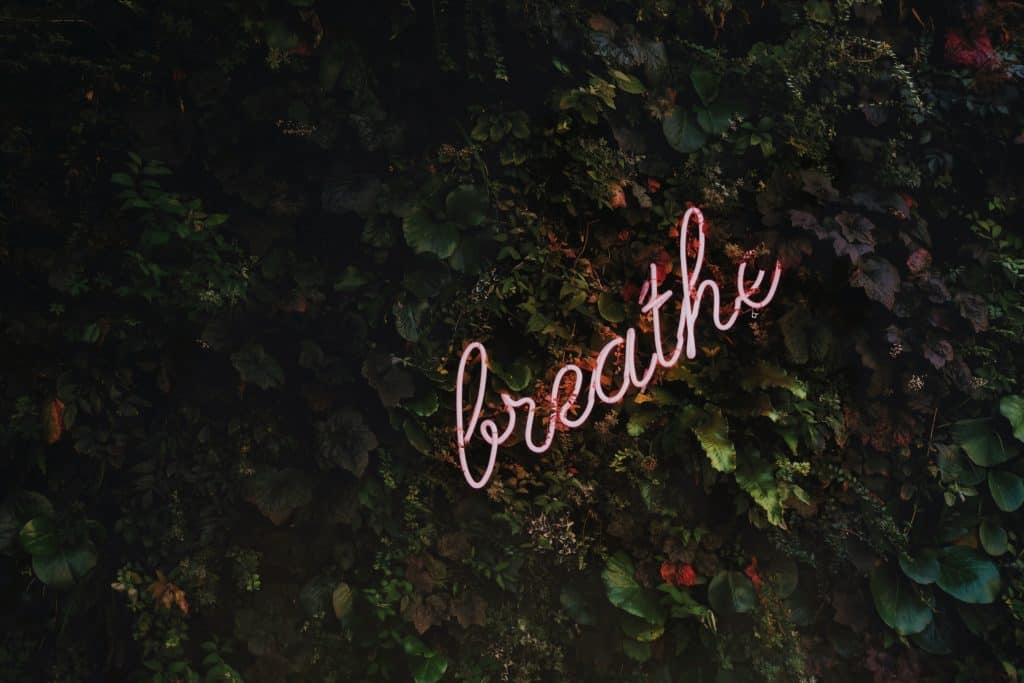During times of stress, when you feel your heart beating faster than usual, your body perspiring, and an overwhelming feeling of panic, this is anxiety setting in. Anxiety is a natural response to stress, and experiencing feelings of anxiousness is common for many people. That being said, when anxiety is frequent and all-consuming, it’s important to implement practical ways of managing it.
Amid the current coronavirus (COVID-19) pandemic, people have been told to practice social distancing and “shelter in place.” For most individuals, this means spending a substantial amount of time at home. If you’re wondering how to help manage anxiety at home, you’ve come to the right place.
Northbound Treatment is dedicated to offering guidance for those facing mental health challenges. Here’s what you need to know about anxiety, including types of anxiety disorders and ways to manage it at home, particularly during the coronavirus crisis.
Types of Anxiety Disorders
Virtually everyone has experienced anxiety, but feeling anxious once in a while doesn’t mean you have an anxiety disorder. However, if it’s something you experience all the time and prevents you from engaging in your day-to-day life, you may have an anxiety disorder.
There are several types of anxiety disorders, including:
- Panic disorder, in which a person suffers from frequent and unexpected panic attacks
- Obsessive-compulsive disorder (OCD), which involves the irrational urge to repeat tasks and behaviors
- Separation anxiety disorder, which is a dread over being away from your loved ones or a familiar environment
- Social anxiety disorder, which is a debilitating fear of social situations and the judgment of others
- Phobia, which is an incapacitating fear of an object, activity, particular environment
- Post-traumatic stress disorder (PTSD), which is the chronic anxiousness associated with a traumatic event
- Illness anxiety disorder, in which someone constantly feels anxious about their health
- Generalized anxiety disorder (GAD), which is a persistent worry and fear about numerous things
Anxiety disorders can affect anyone regardless of their age, ethnicity, income, or gender, and they’re the most common type of emotional disorder.
Anxiety and the Coronavirus Crisis
Minimizing face-to-face contact and staying at least six feet away from anyone outside your household are essential components of slowing the spread of COVID-19. Yet for many, it’s immensely difficult. Not only are you dealing with the stress and uncertainty of a pandemic, but social distancing can be isolating.
Whether you’re working from home, currently out of work, taking online classes, or are suddenly left with a substantial amount of free time at home, your current situation might begin to take a toll on your mental health. So, what can you do to reduce anxiety and feel better during this time? We’ve compiled our best advice on managing your anxiety at home.
9 Tips on How to Help Manage Anxiety
Here’s what you can do to mitigate anxiousness at home. These nine practical ideas will help you manage your anxiety while social distancing, as well as during any other period in life.
1. Make Meaningful Connections (Remotely)
With regard to the coronavirus, social distancing is actually physical distancing. This means you can still socialize with people, albeit remotely. Video calls, virtual happy hours, and regular phone calls are all excellent ways to connect with friends and family during this time. You can also send emails, texts, and letters to your loved ones and connect with them on social media. When you’re used to seeing people in person regularly, interacting remotely might take a little getting used to. However, making meaningful connections and talking to others about your current experience can make you feel less anxious.
2. Get Outside
Research has shown that spending time outdoors can alleviate anxiety and promote emotional wellbeing. This is why many officials have encouraged people to go outside and take walks during the current shelter in place orders, as long as you maintain six feet of distance from other people. Some daylight, fresh air, and little physical movement are often enough to produce positive psychological effects, including feelings of calmness and restoration.
3. Exercise
Speaking of physical movement, staying active can also help you manage your anxiety at home. Studies have shown that regular exercise plays an integral role in a person’s mental and emotional wellbeing — and you don’t have to be an athlete to be active. Daily walks, bike rides, living room yoga sessions, and dancing in the comfort of your own home can all reduce feelings of anxiety. Even as little as 15 minutes of exercise a day can go a long way.
4. Eat a Healthy Diet
One of the best ways to cope with anxiety and stress at home is to maintain a healthy diet. This includes eating regular meals filled with nutritious foods. It’s also important to limit sweets and other junk food. But being too strict or obsessive about your diet can have negative effects. The goal is to eat a well-balanced diet of mostly healthy foods without going overboard and completely depriving yourself of things you love.
5. Stay Busy
In some cases, being too busy and having too much of your plate can lead to anxiety. Yet when you’re spending a substantial amount of time at home, keeping busy can help you manage it. This could involve starting a home improvement project, trying out some new recipes, returning to old hobbies (or starting new ones), learning a new language, doing puzzles, organizing your home, or creating art. It’s all about doing things that provide you with a sense of accomplishment. As a result, you may feel more at ease and in control of your life.
6. Limit Your News Consumption
Watching the news and reading articles can provide you with helpful information about the coronavirus outbreak, and a glimpse of the outside world can make you feel less alone while social distancing. However, some of the reporting can also be upsetting, and engaging in the nonstop news cycle might be feeding your anxiety. You don’t have to stop watching or reading the news entirely, but limiting yourself to a half-hour a day might help calm your nerves.
7. Try Deep Breathing Exercises
Focused, deep breathing exercises can be highly beneficial for those who suffer from anxiety and panic attacks. The 4-7-8 breathing technique is a tried-and-true tactic that helps regulate your breathing, reduce your heart rate, and calm you down. Sometimes referred to as “relaxing breath,” the 4-7-8 technique involves deeply inhaling for four counts, holding your breath for seven counts, and then exhaling for eight counts.
8. Write It Down
For some people, writing down their thoughts can be a useful mechanism for managing anxiety. When anxiousness sets in, it can help you clear your head, make sense of your feelings, and overcome a negative or panicked mindset.
9. Think Positive
Staying positive is easier said than done, especially during a global infectious disease outbreak. And yet, a positive attitude can be beneficial for people who tend to get anxious. Instead of holding yourself to unattainable perfectionist standards, tell yourself that doing your best is good enough, and be proud of your efforts.
Additionally, come to terms with the fact that you can’t control everything. You may not be able to decide when to stop social distancing or get back to a normal lifestyle, but you can control what you do in terms of your health and productivity in the meantime. Consider that things might not be as bad as you think, and try to see some silver linings, such as the fact that you now have time to complete personal projects.
Seek the Professional Help You Need
Each of these tips on how to manage anxiety at home offer psychological benefits, but they won’t be enough for some people. Stigmas about anxiety disorders and other mental health conditions prevent many from seeking the professional health they need. However, in many instances, managing a mental illness goes beyond self-care practices.
Whether you’re facing heightened anxiousness amid the present coronavirus crisis or have been battling anxiety for a long time, clinical treatment can provide you with the tools and insight you need to feel better both now and throughout the rest of your life.
Northbound Treatment Is Here For You
At Northbound Treatment, we believe that people suffering from anxiety are fully capable of living positive, fulfilled lives. Our anxiety treatment programs often involve a combination of therapy and medication. While medication can help balance your brain chemistry, real recovery comes from working with a clinical psychotherapist or mental health counselor to address your fears and create better-thought habits.
Northbound’s anxiety disorder treatment may involve cognitive behavioral therapy (CBT), rational emotive behavior therapy (REBT), or interpersonal therapy (IPT). Those suffering from both addiction and an anxiety disorder will receive dual diagnosis treatment, which will address both issues as part of a comprehensive recovery plan.
Our residential and outpatient treatment centers, including our telehealth outpatient treatment program, are open during the coronavirus pandemic. We’re accepting new patients every day. Call (844) 919-0403 or fill out our online form to start the admissions process at Northbound.
Sources:
- Holland, Kimberly. “Anxiety: Causes, Symptoms, Treatment, and More.” Healthline.com. N.p., 19 Sept. 2018., https://www.healthline.com/health/anxiety
- “Keeping Your Distance to Stay Safe.” American Psychological Association, American Psychological Association, Mar. 2020, www.apa.org/practice/programs/dmhi/research-information/social-distancing
- Pearson, David G., and Tony Craig. “The Great Outdoors? Exploring the Mental Health Benefits of Natural Environments.” Frontiers in psychology 5 (2014): 1178. Print., https://www.ncbi.nlm.nih.gov/pmc/articles/PMC4204431/
- Weir, Kirsten. “The Exercise Effect.” Monitor on Psychology, American Psychological Association, Dec. 2011, www.apa.org/monitor/2011/12/exercise
- “Tips to Manage Anxiety and Stress | Anxiety and Depression Association of America, ADAA.” Adaa.org. N.p., n.d., https://adaa.org/tips
- Fletcher, Jenna. “4-7-8 Breathing: How It Works, Benefits, and Uses.” Medicalnewstoday.com. N.p., 12 Feb. 2019., https://www.medicalnewstoday.com/articles/324417
- Hirschlag, Ally. “How to Cope with Anxiety: 11 Simple Ways and When to See a Doctor.” Healthline.com. N.p., 18 Dec. 2018., https://www.healthline.com/health/mental-health/how-to-cope-with-anxiety
- “Tips to Manage Anxiety and Stress | Anxiety and Depression Association of America, ADAA.” Adaa.org. N.p., n.d., https://adaa.org/tips-manage-anxiety-and-stress










